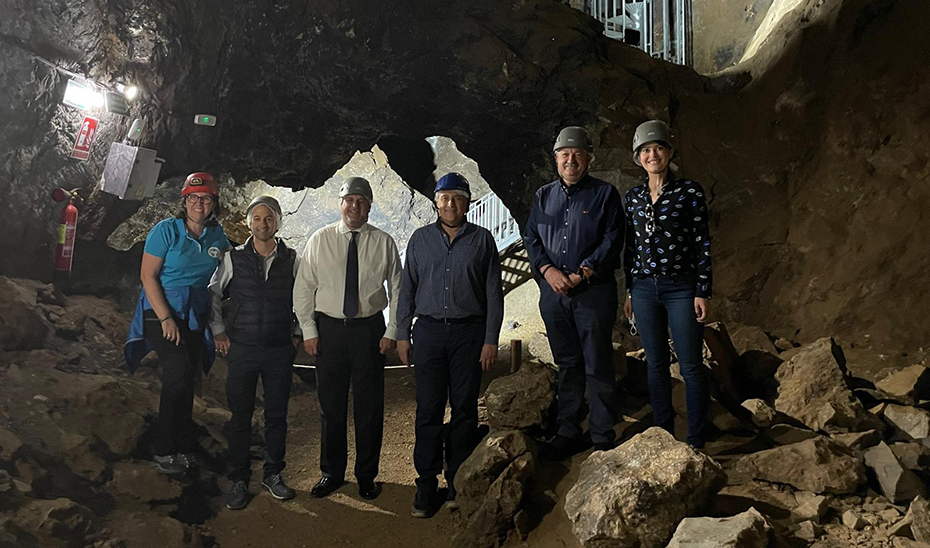-
El rival de la ciudad, el Inter, y el Milán lucharán por el defensa de primera categoría de La Liga con una cláusula de rescisión de 20 millones de euros

Es probable que el descenso del Almería de La Liga, que ha estado en juego durante gran parte de la temporada, se confirme en las próximas dos semanas. En ese momento podremos empezar a mirar oficialmente la próxima temporada en Segunda, pero antes las ventas probablemente se producirán en el verano. Un jugador cuyo futuro…
-
Vaccinul prenatal împotriva tusei convulsive din Spania își reduce severitatea la nou-născuți – Știință Știri

O lucrare a cercetătorilor de la Institutul de Sănătate Carlos III (ISCIII), realizată de Centrul Național de Epidemiologie, indică faptul că vaccinarea prenatală împotriva tusei convulsive s-a dovedit a fi esențială pentru a reduce semnificativ severitatea bolii la copiii sub 3 luni. Această vaccinare, implementată la nivel național în Spania din 2015, se administrează în…
-
Acestea vor fi cele mai îndatorate țări din lume până în 2030 – Știri din Spania

Noul raport privind perspectivele economiei globale de la Fondul Monetar Internațional (FMI) avertizează că guvernele din întreaga lume vor trebui să facă un efort pe termen mediu dacă vor să aibă conturi publice sănătoase. Calculele lor sugerează că pasivele globale vor crește consecutiv an de an până la 99% din Produsul Intern Brut (PIB) în…
-
Acestea vor fi cele mai îndatorate țări din lume până în 2030 – Știri din Spania

Noul raport privind perspectivele economiei globale de la Fondul Monetar Internațional (FMI) avertizează că guvernele din întreaga lume vor trebui să facă un efort pe termen mediu dacă vor să aibă conturi publice sănătoase. Calculele lor sugerează că pasivele globale vor crește consecutiv an de an până la 99% din Produsul Intern Brut (PIB) în…
-
Club Royal scoate la sorți 2 loturi de somon afumat – cadouri și mostre gratuite – Știri de agrement

La extragerea lui Club Royal Vor fi doi câștigători care vor câștiga mult cu mușchi, panglici, zaruri și felii de somon afumat. Royal este unul dintre cele mai recunoscute mărci specializate în fabricarea de somon și cod afumat. Materia sa prima este de cea mai inalta calitate, care combina tehnicile traditionale de productie cu cea…
-
Povești din trecut: Legenda unui rege uitat și a orașului său pierdut
Povești de demult, pline de mister și fascinație, ne aduc aminte de vremurile în care oamenii trăiau într-o lume plină de magie și aventură. Una dintre aceste povești este cea a unui rege uitat și a orașului său pierdut, care a fost transmisă din generație în generație într-un colț îndepărtat al lumii. Legenda spune că…
-
Acrosticos de Víctor
Víctor es un nombre que tiene un significado muy especial y poderoso. Este nombre deriva del latín “Victor”, que significa “vencedor” o “triunfador”. Es un nombre que lleva consigo una energía única y una personalidad fuerte. V – Versátil y valiente, así es Víctor. Una persona que no teme enfrentarse a los desafíos de la…
-
Nuevos neumáticos para bicicletas de montaña Peyote y Mezcal XC ganadores del campeonato mundial de Vittoria

¡Apoyanos! Bikerumor puede ganar una pequeña comisión por los enlaces de afiliados de este artículo. Aprende más Después de haber ganado los Campeonatos Mundiales UCI XCO y XCC, ahora Vittoria está haciendo públicos los nuevos neumáticos para bicicletas de montaña Peyote y Mezcal que su equipo de fábrica ha estado usando durante las últimas 2…
-
“Delta Gundam Unit 2” con su color rojo se destaca como un HG Gunpla. ¡La forma Waverider también está completamente reproducida!

“Delta Gundam Unit 2” con su color rojo se destaca como un HG Gunpla. ¡La forma Waverider también está completamente reproducida! Contenido original en Inglés
-
Junta y Ayuntamiento de Pulpí firman un protocolo para promover la visita a la Geoda entre los universitarios

El consejero de Universidad, Investigación e Innovación, José Carlos Gómez Villamandos, ha suscrito con el alcalde de Pulpí (Almería), Juan Pedro García, un protocolo de colaboración para promover entre los estudiantes universitarios andaluces la visita al conjunto de la Geoda de Pulpí, catalogada como la única geoda del mundo visitable. Este Monumento Natural de Andalucía…
